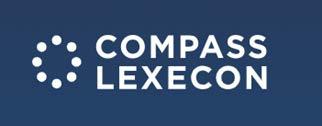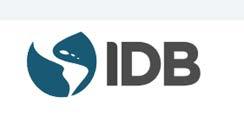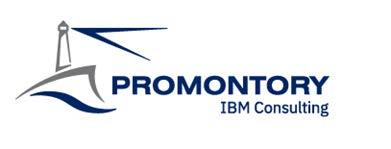Master degree

DATE April 5, 2025
LOCATION
Via dei Caniana 2, Bergamo CONTACTS
Prof. Sergio Ortobelli Lozza Program Director sergio.ortobelli@unibg.it
Prof. Raffaele Fiocco Deputy Director raffaele.fiocco@unibg.it




Master degree

DATE April 5, 2025
LOCATION
Via dei Caniana 2, Bergamo CONTACTS
Prof. Sergio Ortobelli Lozza Program Director sergio.ortobelli@unibg.it
Prof. Raffaele Fiocco Deputy Director raffaele.fiocco@unibg.it



• E&F is aimed at students wishing to acquire an in-depth knowledge of theory and practice of financial markets in the context of increasing digitization and extensive use of big data.
• E&F provides a comprehensive education integrating theoretical knowledge with practical real-world applications of empirical and quantitative skills focused on financial markets.
• E&F merges the benefits of small class sizes, fostering the growth of interpersonal and communication skills, with the versatility of the curricula that can be tailored to align with individual career aspirations.

• The Economics and Finance Master program is accredited by the Charter Financial Analyst Institute (CFA).
• CFA means that academic institutions integrate at least 70% of the CFA® Program Candidate Body of Knowledge™ (CBOK) into their curricula, ensuring alignment with industry standards and a close connection to practical application, associated with a globally recognized professional credential.
• Being part of the CFA Affiliation enables the provision to selected students, following the CFA curriculum of yearly scholarships allowing a discount on CFA exam fees.
100% employment within one year of graduation
E&F program prepares for:
• the Italian Junior Actuary State Exam
• the 1st level CFA examination
E&F meets the expectations of very motivated students who are passionate about finance, economics, risk analysis and data science, expected to operate in a challenging, everchanging environment

Our graduates will gain comprehensive and solid knowledge in corporate finance, commercial and investment banking, insurance, economics, mathematics, and programming skills required to analyze and oversee financial, insurance, and pension products, as well as navigate within the complexities of financial markets.
Our aim is to prepare graduates for prestigious careers in various sectors, including commercial and investment banks, insurance companies, asset managers and other financial intermediaries, consulting and auditing companies, central banks and financial sector, regulatory authorities, sovereign wealth funds, and international organizations.
Risk manager
• Possess expertise in assessing and managing risks associated with financial and insurance products.
• Have a good knowledge of international regulatory frameworks governing the financial sector.
• Have the methodological knowledge to identify, describe, estimate, and mitigate financial and insurance risks.
Potential employers: financial intermediaries (such as banks, asset managers, insurance companies), finance departments of private and public companies, auditing and consulting companies, regulatory authorities, central banks and other international organizations, fintech companies.
Financial analyst and portfolio manager
• Possess the analytical skills necessary to evaluate financial data pertaining to companies and make investment decisions for their companies or clients.
• Monitor macroeconomic developments and financial market developments.
• Design, manage, propose, and evaluate portfolios of financial products.
• Develop and implement statistical and mathematical models for financial data analysis, risk assessment and portfolio optimization.
Potential employers: financial intermediaries ranging from traditional to fintech companies or private equity, auditing and consulting companies, supervisory and regulatory authorities, and independent consultants.
Corporate finance expert
• Propose and execute company development strategies with focus on their financial implications.
• Provide companies or clients with financial advice and execution support in transactions such as mergers, acquisitions, project finance, privatizations.
• Develop and implement financial strategies and plans to optimize the capital structure, funding sources, and allocation of resources of their companies in a risk-management approach.
Potential employers: companies (for their financial functions), investment banks and commercial banks (in corporate support functions), consulting and auditing company, independent consulting.
• Take responsibilities at different levels in organizations, ranging from front office, market oriented positions, to intermediate level positions, with the possibility to acquire over time, through the experience of diversified roles, the seniority and professional skills to achieve top management and governance roles.
• May specialize in specific functions aligned with their professional interests (i.e. credit risk management or underwriting risk management in insurance companies).
Potential employers: bank and insurance companies and groups, and other financial intermediaries functional to the group’s strategies.
• Experts of economic and financial systems, both at the micro and macro level, able to develop empirical analysis by using advanced statistical and econometric methods.
• Obtain the skills to carry-out theoretical and empirical research activities in a digital and sustainable perspective in fields such as: financial markets, sustainable finance, and economic growth.
Potential employers: research centers, consulting companies, competition and market authorities, national and international agencies (e.g. ministries, central banks and European Union institutions), universities, non-profit organizations, economic press agencies.

Specializations:
- QFI in quantitative tools for finance and Insurance
- IBF in corporate finance and financial intermediaries
The master program is flexible thanks to elective courses that can be tailored to suit the student’s career goals.
The QFI and IBF curricula share some common courses such as:
• Advanced Micro and Macroeconomics;
• Mathematics for Economics and Finance;
• Financial Instruments Law or Banking Insurance and Financial Market Law.
Economics, Finance, Insurance and Banking: Advanced Micro and Macroeconomics, Advanced Corporate Finance, Corporate & Investment Banking, Market Credit and Operational Risk Measures, Fintech and Digital Finance, Insurance Methodologies and Techniques, Risk Management and Derivatives, Bank and Insurance Management, International Accounting, Sustainable Finance, Asset Pricing and Risk Analysis, Asset Management and Private Banking.
Data analysis and Applied Mathematics : Statistics and Probability for Economics and Finance, Mathematics for Economics and Finance, Financial Econometrics, Financial and Insurance Risk Modeling, AI and Machine Learning for Finance, Coding for Finance.
Law: Financial Instruments Law, Banking Insurance and Financial Market Law.
• Crash courses ensure that students start from the same level of knowledge in subjects such as mathematics, corporate finance, and economics.
• Teaching quality program: MSc in EF provides well- rounded educational activities, inside and outside the classroom, to develop teamwork skills, ability to present and discuss results of own work effectively, advanced report writing, public speaking, hackathon, entrepreneurial skills.
• A wide variety of extra-curriculum courses, thematic workshops and involvement in ongoing international research, including the opportunity to interact with important scholars and managers of the financial sector.


Learning processes are enhanced by direct involvement of the students in internships. Every year meetings between students and industry leaders for possible internships are organized. Moreover, our students will gain real-world insights and potential career opportunities thanks to the involvement in the courses of professionals in forms of seminars and/or contributions to the lectures. These activities are geared towards the choice of the professional path and to the knowledge of the job market.








ERASMUS students exchange:




Partnerships with international Universities


Summer Schools





Agreement with several UK and EU Universities
Research and Teaching partnership with European, US and Australian Universities
You can attempt Summer Schools in EU and in extra-EU countries

6 Months International Internships

• Admission requirements are available at: https://ls-ef.unibg.it/en/how/how-enroll
• Students holding an Italian bachelor degree in classes L-18 or L-33:
- Direct admission if the final mark at the Bachelor is at least 81/110.
- An interview if the final mark at the Bachelor is below 81/110.
• Students holding an Italian bachelor degree in classes other than L-18 or L-33
- A minimum of 24 CFU in the following areas: Economics, Statistics, Mathematics, Business and Management.
- An interview if the final mark at the Bachelor is below 81/110.
• For all applicants: knowledge of English language corresponding to level B2, according to the Common European Framework of Reference for Languages (CEFR).
• Students not yet graduated in October 2025, but scheduled for graduation on the Spring Session 2026 can enroll, under reserve, given that the missing exams do not overcome 24 CFU.
• Application procedure are available on Economics and Finance’s website at the link: https://en.unibg.it/study/enrollment/foreign-students-join-us
• For any question concerning the applying procedure: please, refer to the International Office Ticket service: https://helpdesk.unibg.it/helpdesksegrestud/index.php?lang=en_US
For further information
Prof. Sergio Ortobelli Lozza Program Director sergio.ortobelli@unibg.it
Prof. Raffaele Fiocco Deputy Director raffaele.fiocco@unibg.it
Web sites https://en.unibg.it https://dipsa.unibg.it/en https://ls-ef.unibg.it/en

Find out more